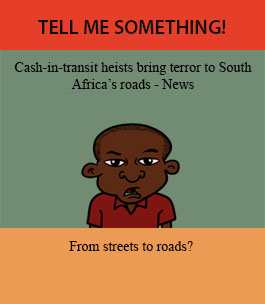South Africa: When a condition of abnormality becomes a normality.
South Africa, arguably the most beautiful country in Africa, has not been
making news globally recently due to its beautiful, breathtaking and panoramic
views of the countryside and seductive beaches; instead, soaring violent crimes
have become synonymous with the southern African country recently, with murder
rate skyrocketing at fearful a 20-year high. It is a record no serious
government – and tourists - would ignore.
For the ANC government in power, the crime rate in the country can hardly
be overlooked in the face of constant murder, violent robbery and other crimes,
which has exposed the vulnerability of the citizens. Crime has become a key
campaign issue with the general election scheduled for this year. It does not
help that the country is not only battling with a high rate of crime but other
social malaises such as unemployment, poverty and corruption, which President
Ramaphosa vowed to battle during his election campaign, are still proving
stubbornly difficult to address. With the upcoming election, which many believe
to be the most competitive since the country dismantled apartheid in 1994 and
brought the ANC to power, President Cyril Ramaphosa needs no one to remind him
of his uphill tasks. The President's nemesis seems to be compounded by the
political rise of firebrand opposition leader Julius Malema, who has re-branded
his Economic Freedom Fighters party to become a formidable opposition one can
hardly ignore.
Despite the robust opposition to his government and the numerous challenges
the country is facing, President Ramaphosa has always confidently assured South
Africans that he is capable of addressing the social ills. But he seems to be
running against the tide. He has yet to prove to critics that he can decisively
address the crime problems.
Nor is that confidence limited to President Ramaphosa. The hoodlums have
shown they can equally act with confidence, impunity and fearlessness. The
recent cash-in-transit hijacks, known simply as CIT, have demonstrated the
level of lawlessness in South Africa and the near-helplessness of law
enforcement to tackle the crimes.
The broad day attack on the security vans carrying money, which saw the
roads closed and guarded by the heavily armed criminals who used bombs to blow
open safes, shows the level of sophistication and audacity of the criminals,
who now act as a well-organised terrorist group. That confidence amongst the
men of the underworld underscores President Ramaphosa's assurances that his
government is on top of the insecurity problems.
"It's been very military organised, well executed, and if you see the
way that they plan these robberies, it's very difficult for our teams to stop
that." Wahl Bartmann, head of security firm ADT Fidelity, lamented.
Like in Nigeria and other crime-infected countries, what makes the recent
waves of crime in South Africa so alarming is the normalcy it has become. It is
not uncommon that gangs and hoodlums are busy terrorising citizens on one side
of the street with their explosives and rove about with automatic weapons while
an average South African goes on with their daily businesses on the other side
of the street. In most cases, motorway traffic continues undisrupted on the
other side of the road while onlookers sometimes film the gang's primetime
infamous violent crime in a Hollywood movie-like manner. It goes a long way in
showing how much many South Africans have sadly accepted the present crime
infestation as part of the country's social reality, which they have to live
with. It is this new social order that seriously needs the attention of the ANC
government and all patriotic South Africans to quickly address before it turns
the beautiful country, the jewel of Africa, into a monster.
It becomes worrisome when a
condition of abnormality becomes a normality.

